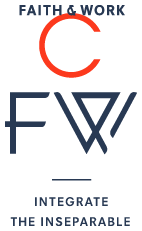
Blog
Four E's of
Faith and Work
Kenny Jhang
A broad movement to integrate social, economic, and religious factors has gained momentum in our culture according to David Miller, founding Director of the Princeton University Faith & Work Initiative, Associate Research Scholar in CSR and Lecturer in the Department of Religion. In his book, God at Work: The History and Promise of the Faith at Work Movement, Miller shares a formal framework to understand the Faith and Work movement which is still currently evolving. The Four E’s is an attempt to capture observation of four archetypes that individuals gravitate towards when considering faith and work issues: (1) Ethics, (2)Expression/Evangelism, (3) Experience, and (4) Enrichment.
Here is a glimpse of the four different aspects of the framework:
Individuals who fall into the Ethics profile seek to use faith to inform practical response to conduct in the marketplace. Business ethics can extend into larger social/economic justice issues, but necessarily being informed by Biblical principles. Leadership models can fall in this category of the integration framework.
The Expression/Evangelism box represents those that approach the workplace as a mission field of non-Christians – with either verbal or non-verbal, and direct and indirect activities. Some opportunities are structured through formal groups, while others are either loosely coordinated or even individualized.
The Experience approach attempts to grasp the theological value of work. Issues of personal calling and purpose for the individual’s place in vocation are utilized here. The fulfillment of this quadrant could be thought of with both intrinsic and extrinsic meaning.
The Enrichment type sees personal faith as a response to being a Christian in a largely non-Christian marketplace. This person will lean on faith as a tool for healing, self-actualization, spiritual growth, and consciousness at work.
The formal framework and language that Miller’s Four E’s model provides can be constructive for purposes of both (A) self-inventory and opening up new modes for expressing one’s faith at work, as well as (B) giving Christians confidence and at the same time, concrete ways to engage with non-Christians in the workplace.
After exposure to this particular lens categorizing faith and work issues, some personal reflection might further self-understanding and identity formation.
Consider these questions:
Do you see yourself naturally identifying with one of the four specific archetypes in the Four E’s framework (Ethics, Experience, Expression/Evangelism, Enrichment)?
Would further study and examples of any of these four areas allow you to feel more empowered to integrate them into your own approach to faith and work?
Do you sense any tension between your own preference for one of the four E’s vs. what you feel should be the priority in integrating into your faith at work?
How does this overall model help challenge you or give you support to address this realizationCan you think of anyone else specific who may benefit from becoming exposed and engaged with the Four E’s Integration Box?
